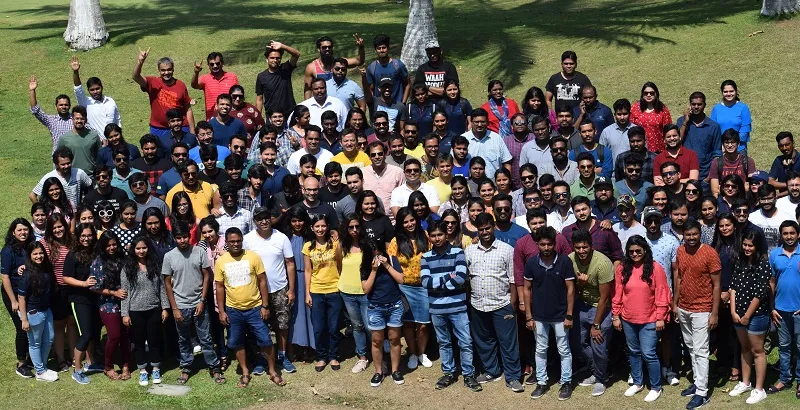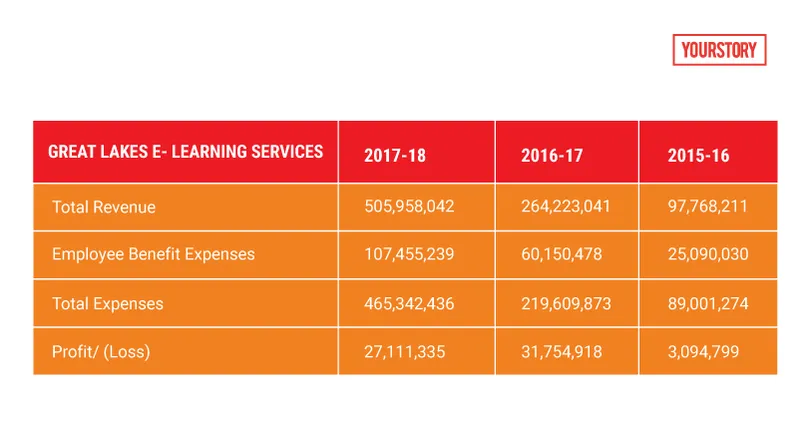How bootstrapped edtech startup Great Learning notched up Rs 150 Cr in revenue
Gurugram-based Great Learning aims to deliver high-quality learning outcomes to professionals and ready them for a data-driven future. Founded in 2013, the hybrid edtech company generated around Rs 150 crore in revenue in FY19, and is aiming for Rs 400 crore this fiscal.
With advances in technology and the shelf life of skills becoming shorter, upskilling is the key to continued employability and growth. But professionals rarely have the luxury to pursue education mid-career, for it often means taking a break or shifting to a new location. Startups in the online education space are making the most of this opportunity. What started with Coursera, Udacity, and BYJU’s has grown into a market worth $210 billion, with professionals opting for online options due to the convenience they offer.
Gurugram-based edtech startup Great Learning claims to have impacted more than 60,000 people so far by providing various opportunities for upskilling. Founded in 2013, the bootstrapped company claims to have turned profitable in the second year of operations. It generated around Rs 150 crore in revenue in FY19, and is aiming for Rs 400 crore this fiscal, and hopes to cross Rs 1,000 crore in the next two years.
Great Learning Founder and CEO Mohan Lakhamraju spoke to YourStory about the startup’s journey so far and its plans ahead:
Initial days
Stanford graduate and former India MD of Tiger Global Management, Mohan was associated with Chennai-based Great Lakes Institute of Management, where he met Hari Krishnan Nair. Together, they co-founded Great Learning, and were joined by Arjun Nair as the third co-founder in 2016. An MBA holder from MIT, Arjun joined after a stint at Zipdial, a Bengaluru-based tech startup that was acquired by Twitter.
The first six months were spent developing the edtech startup’s technology platform and its first product – a post-graduate blended learning programme in business analytics.
Mohan recollects that their first student was a female employee from Accenture, who wanted to pursue a course in business analytics for a fee of Rs 3 lakh. The 11-month course was designed as a substitute for MBA, to cater to people who can’t leave their job for higher studies.
Thirty people enrolled once the startup officially launched operations in December 2013. “That first batch went on to become our biggest brand ambassadors,” he says.
Great Learning’s user base is mostly mid-career professionals who want to upskill themselves to stay in tune with market requirements and are unsatisfied with the education they have received earlier. This year, the startup has seen a rise in the number of college students signing up.
Mohan says finding the right talent to build his team was the greatest challenge he faced. But with the right referrals, Great Learning is now a team of 500 people spread across six cities.

Team Great Learning
Multiple models
Great Learning offers three models of online education. The first, which lasts between nine and 12 months, includes two-three days of offline classes in a month; all the other learning is online. The second model – mentored learning – spans six to nine months and all information is disseminated through videos. Every weekend, live video sessions with mentors are offered to groups of five to 10 students. Both these models cater to professionals with three to 20 years of experience.
For professionals with less than two years’ experience, Great Learning offers a bootcamp: an intense five-month, full-time programme.
Courses are mostly in business analytics, machine learning, artificial intelligence, data science, cloud computing, and IoT, among others. Great Learning’s students come from diverse industries such as IT, BFSI, manufacturing, healthcare, automotive, NGOs, government etc.
The startup charges Rs 3 lakh - Rs 4 lakh for the one-year course, and Rs 1.5 lakh for the six-month course. Their average course fee is Rs 2.5 lakh. The company, through an integration with LinkedIn, tracks users’ careers (and updates), thereby measuring the impact of their courses. Mohan claims that users seldom fail to get ROI after upskilling themselves via Great Learning.
The startup has users from 17 countries. The fee is similar to that in India for users from developing countries while it is higher for those from developed countries.
Serving the Indian customers
Maintaining quality in the edtech business is harder than in most other sectors.
Mohan explains,
“In a transactional business like ecommerce, you have just one interaction with the user. But in education, programmes are typically 11-months-long. There are probably 500 interactions with learners, and we have to keep them satisfied across all 500 interactions. And we are judged by the worst of them, not the best of them, which means that there has to be a substantial adherence to quality. We've got that right.”
Additionally, Great Learning has partnered with about 200 corporates to provide customised programmes for their hiring purposes.
“With tailor-made courses, we help these corporates with training people that they hire from colleges. Also, in our bootcamp programme, we train students, and companies hire them,” Mohan says.
The significance of human touch
According to Mohan, education in India is a lot about people unlike the western models of education which are largely technology-based.
“You need somebody when your motivation goes down; somebody to get you unstuck when you don’t understand something. But in live instruction, interaction is little once you have more than 50-60 people. So people disengage, and learning doesn't happen.”
He clarifies that Great Learning’s model is not on-demand mentorship, but a structured learning experience.

Source: Data from RoC filings.
Since the co-founders came from the offline world, they already had access to a network of great faculty. “Using technology and human touch, we figured out how to take all the good things in offline education to the online channel. We made sure that they're actually learning – not just watching a few videos,” Mohan adds.
Future plans
According to Mohan, the education sector will continue to be substantially disrupted by technology. He believes that there will be more demand for experts in cloud, cybersecurity, design, and data science, and these courses will be in higher demand. However, he is clear that Great Learning does not want to be in the K-12 category. “It is easier to serve adults, as they are decision-makers themselves. Kids are a much bigger responsibility,” he smiles.
Mohan does not deny, however, that consolidation is happening in the edtech space, with multiple models coming up. “In the last two to three months, we have got six requests for acquisition. We may consider it in the future. But we are not looking to get acquired; what we are looking to do is to keep growing our impact.”
The scope to make an impact is huge too – India has about 400 million professionals, including 50 million knowledge professionals, out of which five million are tech-enabled knowledge professionals. As Great Learning grows, its potential to influence the quality of the Indian IT workforce also deepens.
(Edited by Teja Lele Desai)




1560193561701.jpg?fm=png&auto=format&h=100&w=100&crop=entropy&fit=crop)




